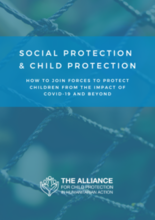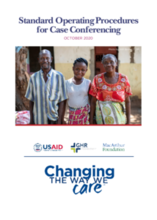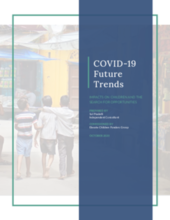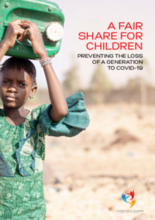Displaying 1231 - 1240 of 4424
This Child Protection learning brief, the second in a series, has been prepared for UNICEF country offices and practitioners as they respond to mental health and psychosocial impact during the pandemic.
"The Rome-based International Union of Superiors General launched Catholic Care for Children International online Oct. 2, inviting all women's and men's religious orders to join the global initiative to end or reduce recourse to institutionalized child care and instead get children into safe and loving family- or community-based care," says this article from Global Sisters Report.
The objective of this guidance is to lay out key arguments for close collaboration across Social Protection and Child Protection to address the socio-economic impact of COVID-19 on children and families towards reduction of adverse Child Protection outcomes.
Join ODI and World Vision for a webinar exploring critical connections between the climate change and violence against children agendas.
The Alliance for Child Protection in Humanitarian Action (the Alliance) is organizing the 2020 Annual Meeting on Child Protection in Humanitarian Action over a virtual platform from the 5th to 16th of October 2020.
The purpose of this Standard Operating Procedure (SOP) is to provide a standard and consistent approach to case conferencing as part of a comprehensive case management approach utilized during decision-making processes for children. The SOPs should be utilized by institutions (e.g. Charitable Children’s Institutions, or CCIs) and organizations as well as other actors engaged in decision-making around children’s care and protection.
In attempts to delineate the future impacts on today's children, this paper analyses the COVID-19 crisis as a dynamic phenomenon that shapes children's lives well into adulthood, with age and gender considered key influencing factors. It examines the impacts from previous crises and the available data to build prudent assumptions about the present situation and outlines four scenarios which provide opportunities to identify potential levers for positive change.
This report calls on world leaders to come together and agree a global package to help low income countries and ensure the most vulnerable to the COVID-19 crisis receive at least some support.
Organized by the CP AoR and the CPC Learning Network, this webinar will present the new ‘Children as Partners in Child Protection during COVID-19 Guide’ with the aim to assist humanitarian actors to maintain and strengthen children’s meaningful participation in their work in response to the current COVID-19 pandemic and in preparedness planning.
In this article, the authors highlight a framework distinguishing experiences of trauma from experiences of deprivation and use the examples of posttraumatic stress disorder and reactive attachment disorder to demonstrate how greater specificity in our understanding of early adverse caregiving can lead to more accurate and targeted diagnosis and treatment for young children.





